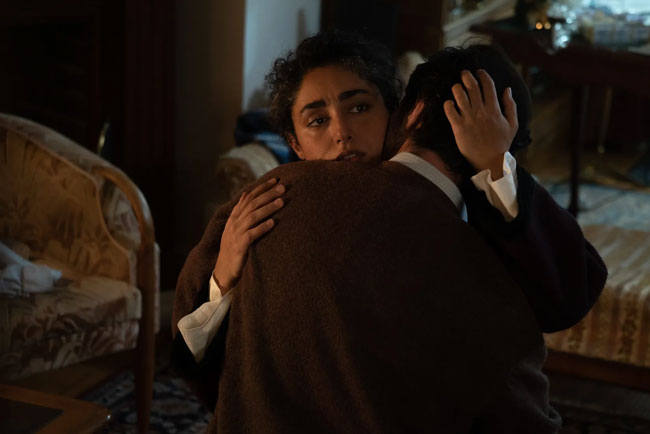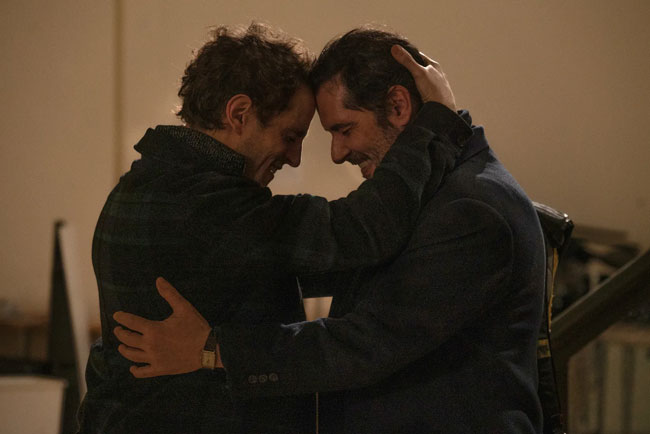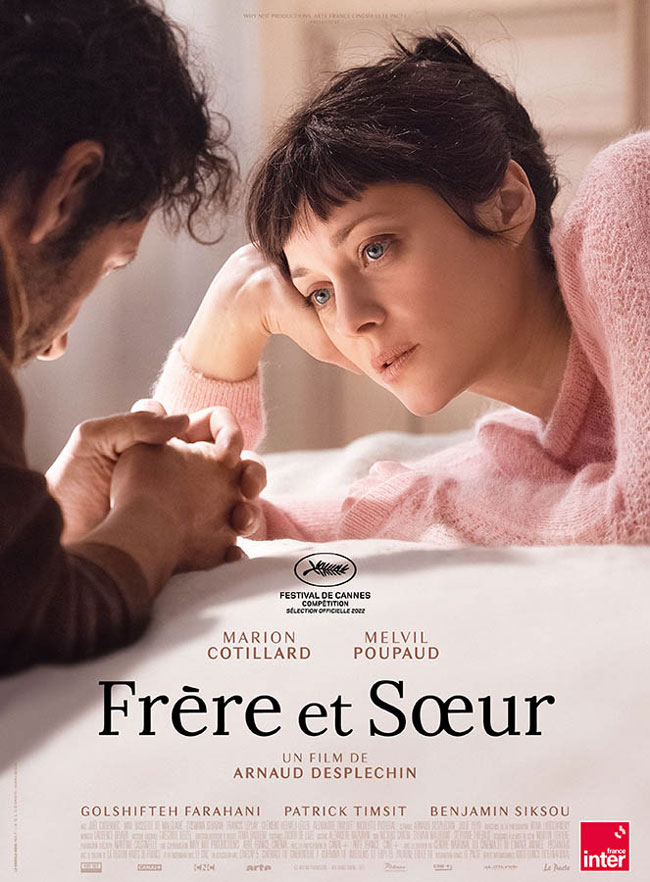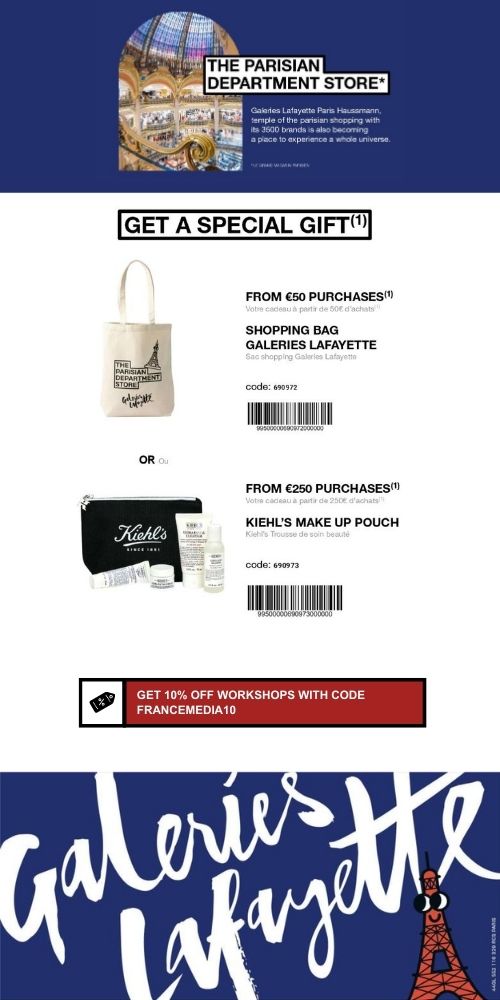Marion Cotillard’s New Film at Cannes Misses the Mark
- SUBSCRIBE
- ALREADY SUBSCRIBED?
BECOME A BONJOUR PARIS MEMBER
Gain full access to our collection of over 5,000 articles and bring the City of Light into your life. Just 60 USD per year.
Find out why you should become a member here.
Sign in
Fill in your credentials below.
Not every movie at Cannes is a home run, which was certainly evident from Frère et Soeur. I went into this movie really wanting to love it. It had a compelling premise (a brother and sister who haven’t spoken for decades due to a rivalry), and it stars French gem, the Oscar-winning Marion Cotillard.
But in this Arnaud Desplechin-directed feature, Frère et Soeur, everything fell flat. It was too out-there, too melodramatic. Too, well, French. The French journalist sitting beside me noted the same thing when the film ended. I remarked that it was way too long, and the story was a bit bizarre. He smiled, agreed, and said, “It was very French.”
Anyone with the guts to create anything earns my respect, and I’m not here to tear down someone else’s work. But I will say that this had the potential to be a great film; however, it just didn’t deliver. Instead, it was one during which 11 – yes, I counted – journalists walked out on the film mid-screening. The attendees at Cannes Film Festival are notoriously ruthless and emotive. They walk out of movies; they boo; they also give a 10-minute standing ovation. They are as heaping in their praise as they are of their distaste.

Still from ‘Frère et Soeur.’ Courtesy of The Cannes Film Festival press office
Marion Cotillard and co-star Melvil Poupaud play – as the title implies – brother and sister. Frère et Soeur is in the “En Competition” category at the 75th Cannes Film Festival this year, but I do not imagine it will reach great heights within the competition.
Alice (Cotillard) is a celebrated actress (in an incident of art imitating life) known for her stage work. Her brother, Louis (Poupaud), also experienced a rise to fame but much later than Alice. “He lived in my shadow,” Alice says. Louis’s profile grew when he began publishing his books and his poetry, and it left Alice seething with jealousy and rage. She tells him on the day he wins an award, “I hate you,” with a smile.
We get these glimpses of their past tensions and the present-day incident that brings them together, against their wishes. Louis and Alice – who also have a younger brother – learn that their parents are in a terrible car crash when a truck spun out of control and hit them. Their parents had stopped on the side of the road to help a young woman in trouble.

Still from ‘Frère et Soeur.’ Courtesy of Cannes Film Festival press office
The melodrama is at a high throughout this film, in a way that I found exhausting. Nearly every scene is executed at an 11 on a scale of 1 to 10. It all feels out of proportion, too. You hate your brother because he outshines you, so you refuse to meet his son? We learn that Louis has written about Alice, but we don’t know what he wrote. Perhaps she’s justified in her intense disliking. When she shows up to the wake of Louis’s dead six-year-old son, he curses at her and tells her to leave.
Every moment of this movie is heightened but without too much understanding as to why. I was confused during much of the film, and the Cannes audiences were equally uninvested. Some audience members even laughed during moments that were supposed to be heartfelt and tender.
The health of their parents – who are still in the hospital after the accident – is declining rapidly. Alice is called away from a play, and she faints when she sees Louis at the hospital, unable to bear the sight of him. Meanwhile, Louis berates Alice’s 16-year-old son in a bookshop in a bizarre display of rage. And Alice befriends a woman, Lucia, who appears to be her stalker. She even buys the obsessive fan groceries and muses to her husband that maybe they can have the woman move into their home with them.
Louis struggles with addiction, which leads to one scene in which we see him flying over the town of Lille on a drug trip. Like Peter Pan flying to Wendy’s London window, Louis flies to his mother’s hospital bedroom window. Throughout, the movie couldn’t decide what it wanted to be: A family drama, a story of reconciliation, a redemption tale, or a comic tale about two over-the-top artists.

Frère et Soeur Official Poster
At the end of the film, Louis and Alice, having now reconciled, are in bed together – only to sleep, but there were allusions to something else. It had me wondering what exactly Louis wrote about her to enrage her so much, and if any of it was true, and if there was a reason Louis’ wife acted so strangely towards Alice. This film was a tale of dysfunctional from start to finish. And Alice and Louis were far too unlikeable for the audience to care about them; they were just mean – not only to each other, but also to those around them. Alice screams at a pharmacist trying to help her with her medication. With one of the titular characters being as off-putting as that, I wasn’t surprised to see so many audience members leave the screening before the credits rolled.
If this film had any redeeming features, it was the older actor with the kind face who played their father. Veteran French actor Joël Cudennec made me care about Frère et Soeur a little bit, if only very slightly.
Lead photo credit : Frère et Soeur Trailer taken from Youtube
More in 75th Cannes Film Festival, Arnaud Desplechin, Marion Cotillard





